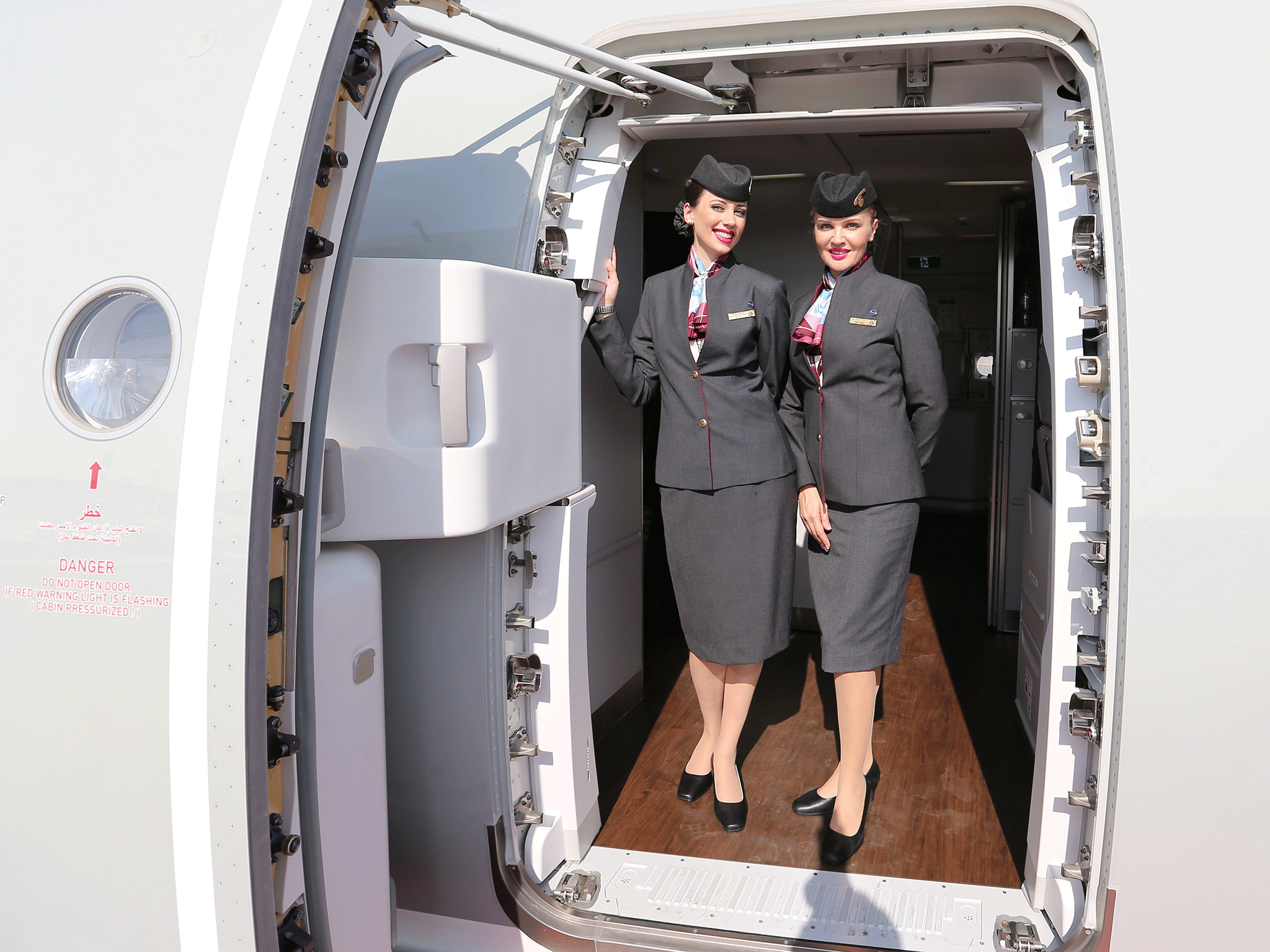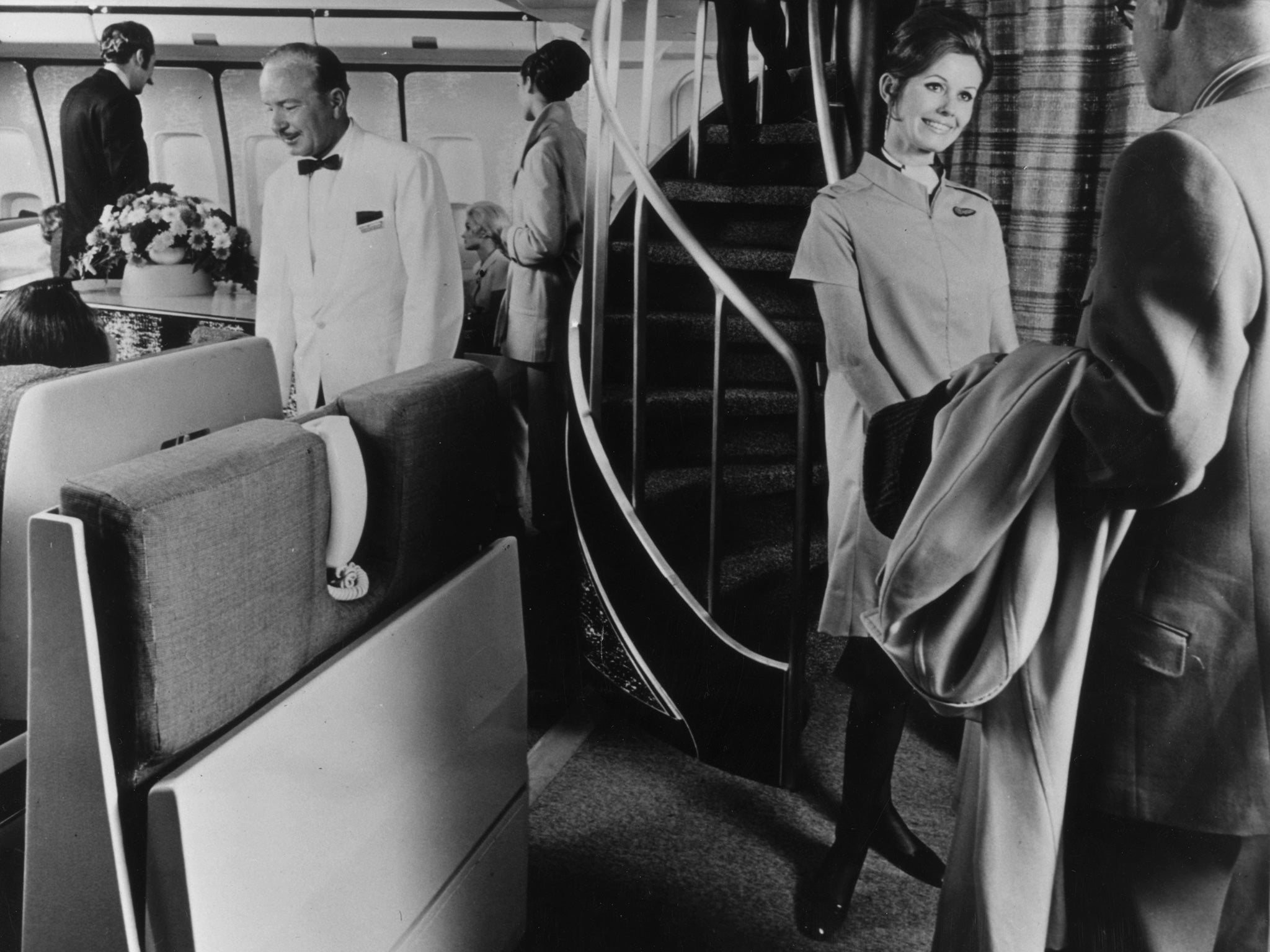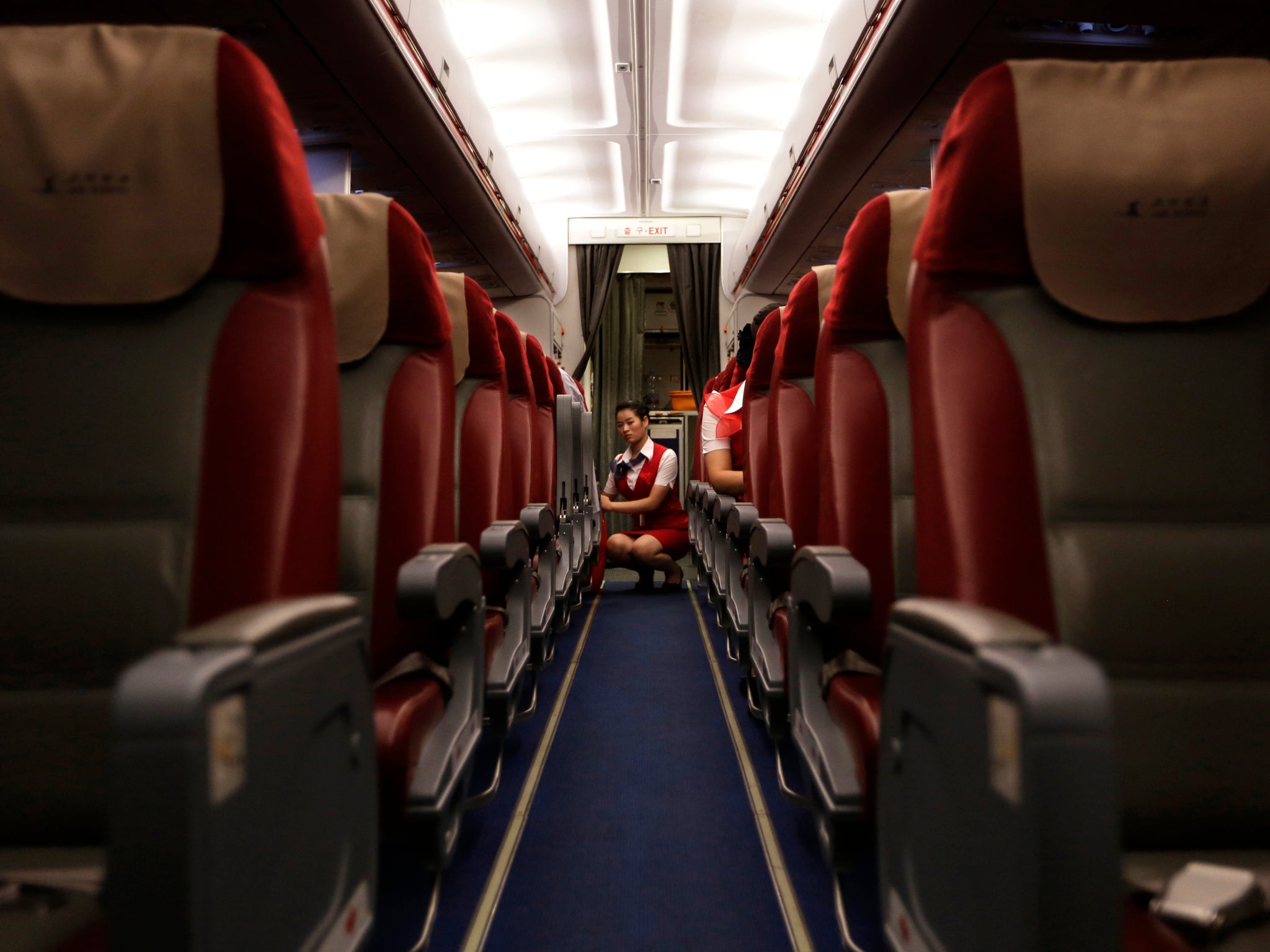What flight attendants are really thinking about when they greet passengers
Checking out a passenger's physique is important

Your support helps us to tell the story
From reproductive rights to climate change to Big Tech, The Independent is on the ground when the story is developing. Whether it's investigating the financials of Elon Musk's pro-Trump PAC or producing our latest documentary, 'The A Word', which shines a light on the American women fighting for reproductive rights, we know how important it is to parse out the facts from the messaging.
At such a critical moment in US history, we need reporters on the ground. Your donation allows us to keep sending journalists to speak to both sides of the story.
The Independent is trusted by Americans across the entire political spectrum. And unlike many other quality news outlets, we choose not to lock Americans out of our reporting and analysis with paywalls. We believe quality journalism should be available to everyone, paid for by those who can afford it.
Your support makes all the difference.When flight attendants greet us smilingly at the plane door, they are not there just to check our passports again and point down the only aisle available.
Nor are they merely advertising the airline brand on their uniforms or making a show of excellent customer service.
In fact, Quora users who have been flight attendants for years reveal what they are really doing in the three seconds they meet each passenger - having a good think about each face that steps aboard.
1. Making the right impression
First off, flight attendants say they are trying "very hard" to give the impression they are warm, approachable and competent.
Many people are nervous about flying and this is the first chance to make them less of a worry point on the plane.
2. Checking to see if you are drunk
But they have also been trained to, above all, see if you are going to be a problem on the flight.
If you appear drunk - or have your own alcohol poking out of your handbag - it's off the plane with you.
And if they get drunk on the flight, the attendant is likely thinking about how to best deal with them as they say goodbye to everyone else at the end of the trip.
3. Evaluating your attitude

The flight attendant is asking themselves: "what attitude do I get off this person? Helpful? Belligerent? Withdrawn?"
It has been known - though rare - that someone can appear so rude and nasty to crew members on stepping aboard that they are asked to leave the plane before lift-off.
4. Looking at your physique
People who are clearly powerful and physically strong are seen as a "good resource", said one user.
"If I see someone who is muscular, powerful, strong, physically fit - I memorise his/her face and make a mental note of where they are sitting.
"If a situation looks like it could develop, I'll privately and discreetly ask one of these people if they would be willing to help us if necessary."
Those who look physically very weak may also not be placed by the exit hatches, as you have to be strong enough to lift them.
5. Finding out if you can speak English
If a passenger clearly cannot speak a word of the language of the plane, they will not understand shouted commands.
They will be less useful in an emergency situation, and will also not be able to read instructions on dealing with exits - so may again be seated somewhere less crucial.
6. Checking if you are also a flight attendant or pilot

One user said: "I try to learn if we have any passengers who are airline employees.
"They are an invaluable resource for me, and I like to know who they are and where they are sitting."
This user detailed an example of a flight which crashed in Sioux City Iowa in 1989. The pilot was struggling, when the head flight attendant remembered there was another pilot sitting as a passenger.
She went to fetch him, and his help guided the plane to ground safely, saving tens of lives.
7. Looking to see if you are ill
Passengers who look "pasty and pale, deathly ill" have been removed in the past.
As one flight attendant said, no one wants their flu onboard.
8. Which passengers are attractive
One attendant wrote: "Sometimes I was thinking, in my personal life I would never say anything to this or that person.
"Or, wow, she is cute, I would be too shy in real life to even talk to her. But here I can say hello and have small talk..."
9. Who got their hand luggage through
Another said she was amazed at how some passengers managed to get massive suitcases into the hand luggage category.
Sometimes they are thinking "how did that make it past the gate?".
10. Their bed
And at the end of the flight, duties done, the attendant is probably thinking about getting out of their uniform and relaxing in the "layover hotel" or at home.
Either that, or whether they have time for a sandwich before getting their next flight.
Join our commenting forum
Join thought-provoking conversations, follow other Independent readers and see their replies
Comments